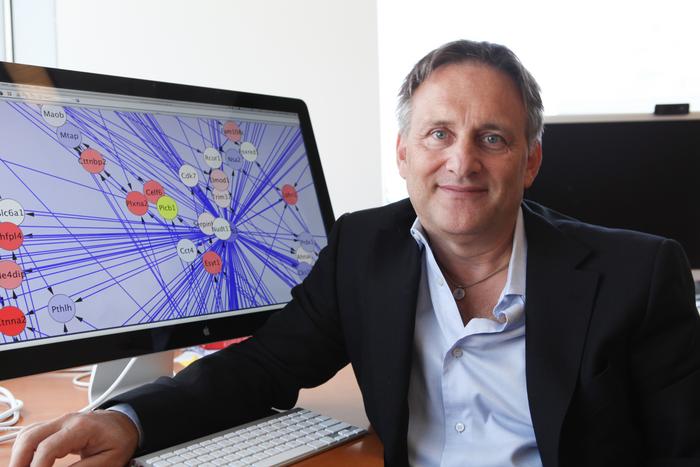Andrea Califano, Dr, has been honored with the 26th Alfred G. Knudson Award in Cancer Genetics by the National Cancer Institute (NCI) for his exceptional contributions to the field of cancer research. Califano, a pioneer in the field of cancer genetics, is the Clyde and Helen Wu Professor of Chemical and Systems Biology at Columbia University Vagelos College of Physicians and Surgeons and a member of the Herbert Irving Comprehensive Cancer Center.

Credit: Columbia University Irving Medical Center
Andrea Califano, Dr, has been honored with the 26th Alfred G. Knudson Award in Cancer Genetics by the National Cancer Institute (NCI) for his exceptional contributions to the field of cancer research. Califano, a pioneer in the field of cancer genetics, is the Clyde and Helen Wu Professor of Chemical and Systems Biology at Columbia University Vagelos College of Physicians and Surgeons and a member of the Herbert Irving Comprehensive Cancer Center.
The award is named in honor of geneticist and cancer researcher Alfred G. Knudson, MD, a 1947 graduate of the Vagelos College of Physicians and Surgeons, who helped uncover several major genetic mysteries behind cancer leading to his “two-hit” hypothesis explaining the relationship between hereditary and non-hereditary cancer. The NCI presents this prestigious award to individuals who have advanced our understanding about the genetic workings of the disease. Califano joins the ranks of esteemed past recipients, including Columbia researcher Riccardo Dalla-Favera, MD, as well as Nobel laureates J. Michael Bishop, MD, Robert Horvitz, PhD, Harold Varmus, MD (a 1966 VP&S graduate), Leland Hartwell, PhD, and Elizabeth H. Blackburn, PhD. Califano received his award today at the 2023 NCI Intramural Scientific Retreat, where he presented an award lecture.
“Dr. Califano’s innovative work has led the field and yielded new insights into cancer biology, particularly in the elucidation of how regulation of specific pathways can drive cancer,” says Stephen Chanock, MD, director of the NCI’s division of cancer epidemiology and genetics, who presented the award. “His work on how these changes can influence tumor dependency represents an important foundation for developing novel approaches to therapy, particularly in relapsed cancer.”
Approaching cancer research with a background in physics, Califano’s passion has been to create an “assembly manual” of the cancer cell, using computational and experimental approaches to create a comprehensive, tumor-specific map of the complex network of molecular interactions that determine a malignant cell’s behavior and response to treatment. His lab works to uncover the master regulators—key load-bearing pillars in that regulatory network that work together to power the cancer cell—that can be targeted with therapies to create more precise and effective treatments. This approach has resulted in several clinical trials, including a novel, RNA-based N-of-1 precision oncology study.
“I am deeply honored and humbled to receive this award from the NCI,” Califano says. “I continue to be inspired and motivated by the ability of my colleagues to look at cancer from novel and complementary angles. I am convinced that collaboration between cancer researchers with different backgrounds is absolutely critical to advancing our understanding of cancer’s weaknesses and, ultimately, to finding new therapies that improve the lives of cancer patients and their families.”
Califano is the founding chair of the Department of Systems Biology and was director of the JP Sulzberger Columbia Genome Center from 2013 to 2023. While retaining his Columbia appointments, he is about to take leadership of a new multi-institutional research center in the New York area that will be announced later this week. He has received several awards and recognitions, including the 2015 and 2022 NCI Outstanding Investigator Award and the 2019 Ruth Leff Siegel Award in Pancreatic Cancer. He is a member of the National Academy of Medicine, as well as a fellow of the American Association for the Advancement of Science, International Society for Computational Biology, and IEEE (Institute of Electrical and Electronics Engineers).




